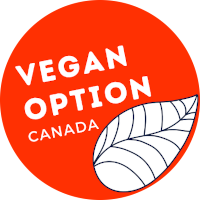In recent years, many people have been adopting vegan/plant-based diets for a variety of reasons, such as to reduce their environmental footprint, protect animals, and improve their own health. Businesses are responding to the increasing public demand for vegan options., and vegan restaurants have been popping up throughout the country.
In 2015, the Health Branch published a guide outlining the many benefits of a plant-based diet, unequivocally showing that a plant-based diet that includes legumes, whole grains, fruits, and vegetables meets all human nutritional needs at all stages of life.
According to Dietitians in Canada, a vegan diet is suitable for people at all stages of life, including children, adults, and pregnant or nursing mothers. They continue, “A well-planned vegan diet is high in fibre, vitamins and antioxidants. Plus, it’s low in saturated fat and cholesterol. This healthy combination helps protect against chronic diseases.
Vegans have lower rates of heart disease, diabetes and certain types of cancer than non-vegans. Vegans also have lower blood pressure levels than both meat-eaters and vegetarians and are less likely to be overweight.
Meanwhile, the new revised version of Canada’s Food Guide encourages Canadians to focus on choosing plant-based sources of protein as well as foods that contain mostly unsaturated fat (as opposed to foods that contain mostly saturated fat). The revised Canada's Food Guide recommendations have eliminated dairy as a food group. Fortified plant-based milk is also mentioned as a healthy option.
The evidence is compelling. With so many reputable health organizations recommending a shift to plant-based eating patterns, it is clear that all members of the public should have access to plant-based food options at schools, hospitals, and other public institutions.
In addition to the benefits to public health that plant-based foods offer, there are also a global environmental conservation issues to consider. The UN has mentioned that a shift towards a plant-based diet is an important way to protect the environment. Livestock farming produces methane and contributes to resource over-consumption, deforestation, and pollution. In fact, the United Nations Environment Programme has stated that “[a] substantial reduction of [environmental] impacts would only be possible with a substantial worldwide diet change, away from animal products.” .
These issues, in addition to the moral philosophy of animal rights which vegans hold dear, raise the question of freedom of conscience, which is dear to our values and enshrined in our Constitution. Section 2A of the Canadian Charter of Rights and Freedoms states that every Canadian citizen enjoys, among the fundamental freedoms set out, freedom of conscience and religion.
Since vegans believe that the consumption of animal products is morally unacceptable, it is clear that freedom of conscience includes the ethical choice to practice veganism and to choose vegan food. The underlying motivations for choosing a vegan lifestyle certainly fall under the umbrella of the Charter’s expression of “conscience”.
The choice of veganism can therefore no longer be ignored, since it is explicitly part of the freedom of conscience that is clearly stated there. As a result, no one today should be forced to consume meat, milk, cheese or eggs, neither directly nor for lack of another choice.
Veganism is a set of moral principles, and could easily be defined as a creed. “Creed” is described by the OHRC (Ontario Human Rights Commission) as religious or non-religious “belief systems that, like religion, substantially influence a person’s identity, worldview and way of life”. It is important to remember that the purpose of the OHRC primarily is to ensure equal rights for every person in Ontario, without discrimination of any kind.
This acceptance of diversity is fully reflected in the new version of Canada’s Food Guide, which addresses cultural diversity and indicates that food is intrinsically linked to identity and culture.
At the heart of a vegan’s identity is the consumption of vegan food and the avoidance of consuming animal products. A vegan cannot choose to eat “something else” if a vegan option is not available. It is therefore absolutely essential that vegan options are always available in public institutions.
It is important to note that these vegan options must adhere to the same standards of quality as omnivorous meals. Vegan food can be rich, varied and high-quality. Vegan options must therefore be well-prepared and allow for a full and balanced meal and must be approved by a nutritionist, dietitian or other food specialist. There is no shortage of sources for quality vegan recipes and products. Institutions will have to receive the necessary knowledge and training to be able to create these meals. A guide to plant protein for suppliers is already available which offers a whole range of vegan products and easy, affordable recipes, and allows for large-scale service. Countless vegan cookbooks are readily available as well.
For all the reasons mentioned above, we therefore urge the Government of Nova Scotia to require all public institutions, including primary and secondary schools, universities, seniors’ homes, prisons, and hospitals, to make available satisfactory vegan options through their food service providers. This has already been done successfully in Portugal, which could be used as a model if necessary.
Your Signature
%%your signature%%


